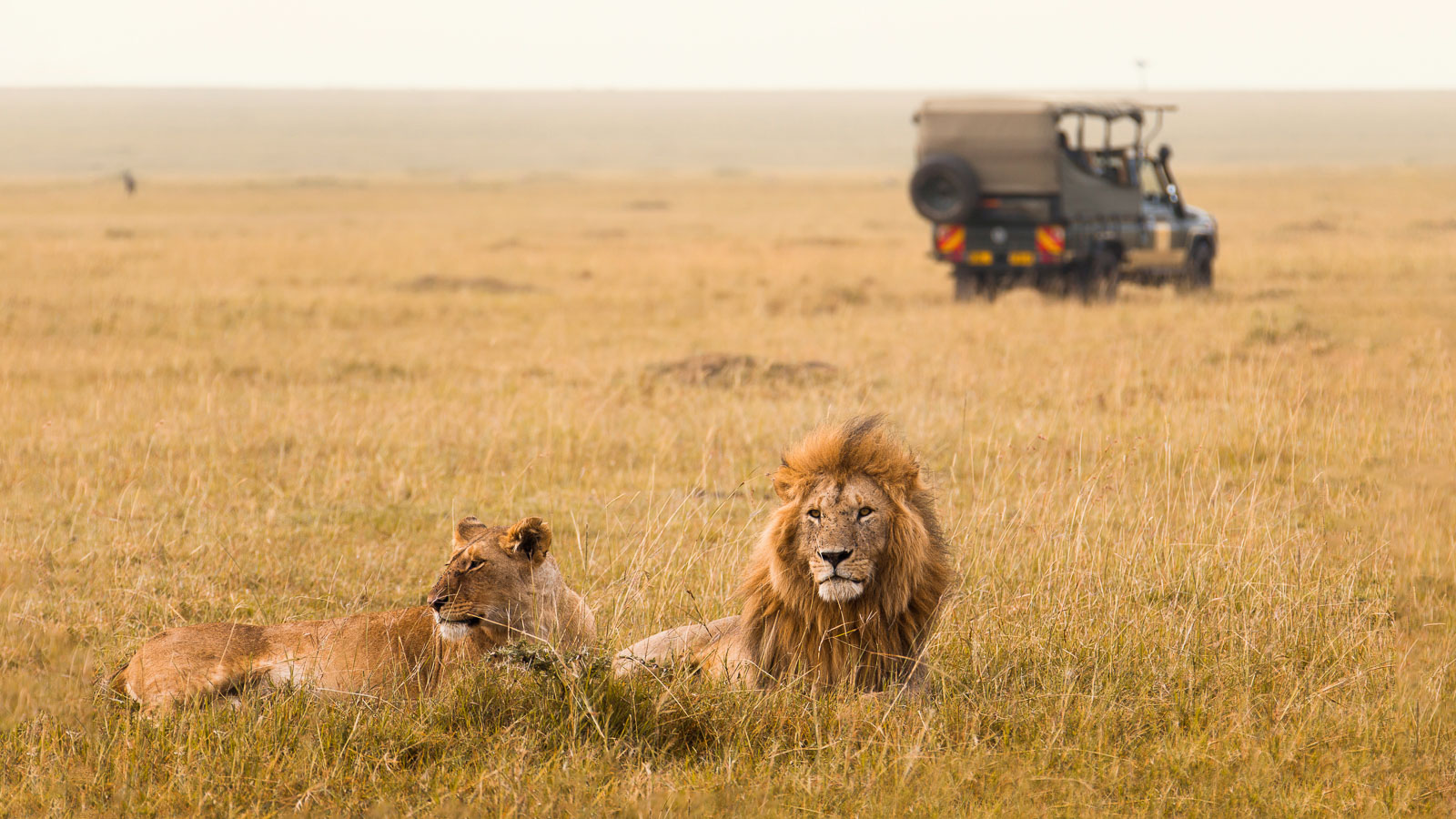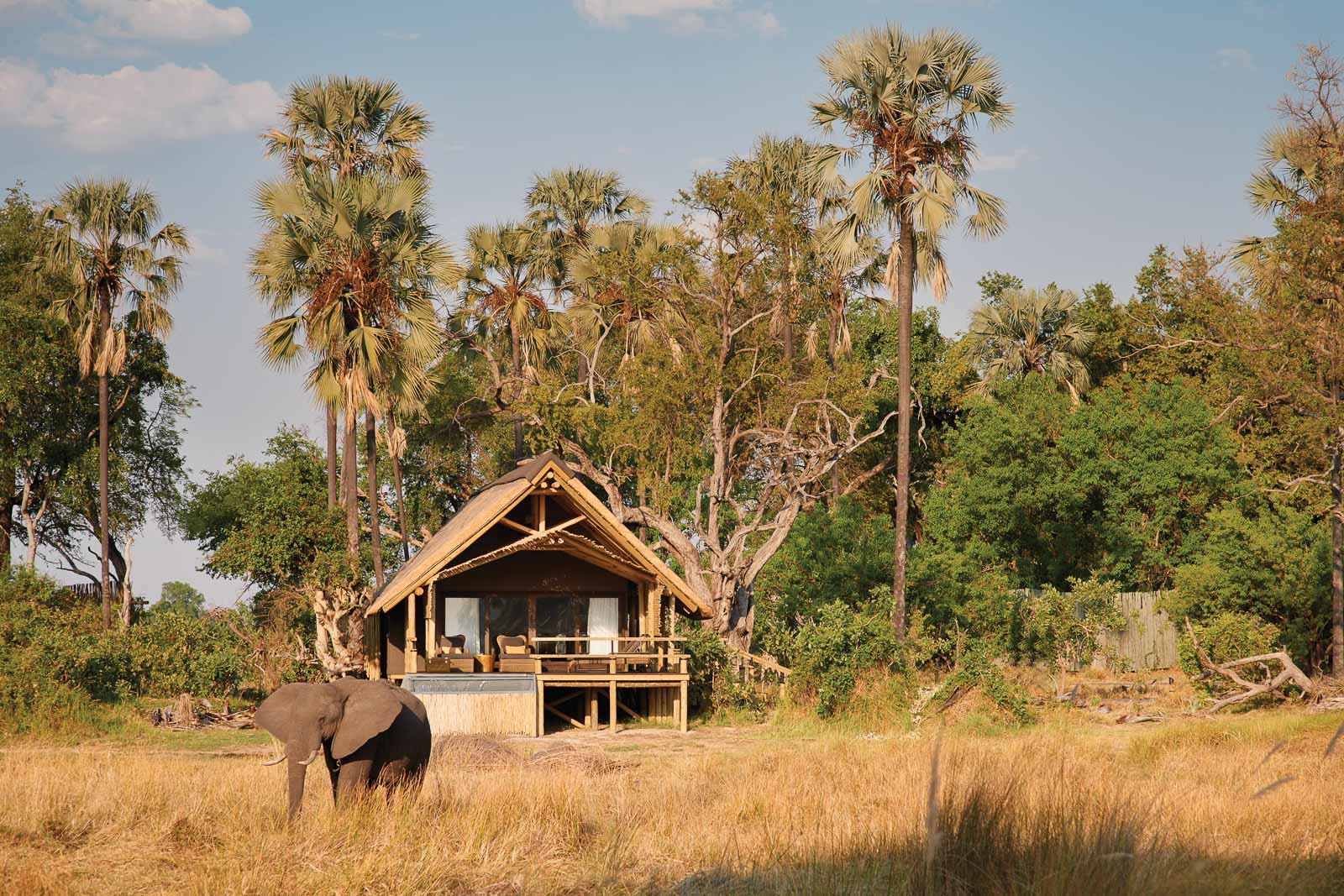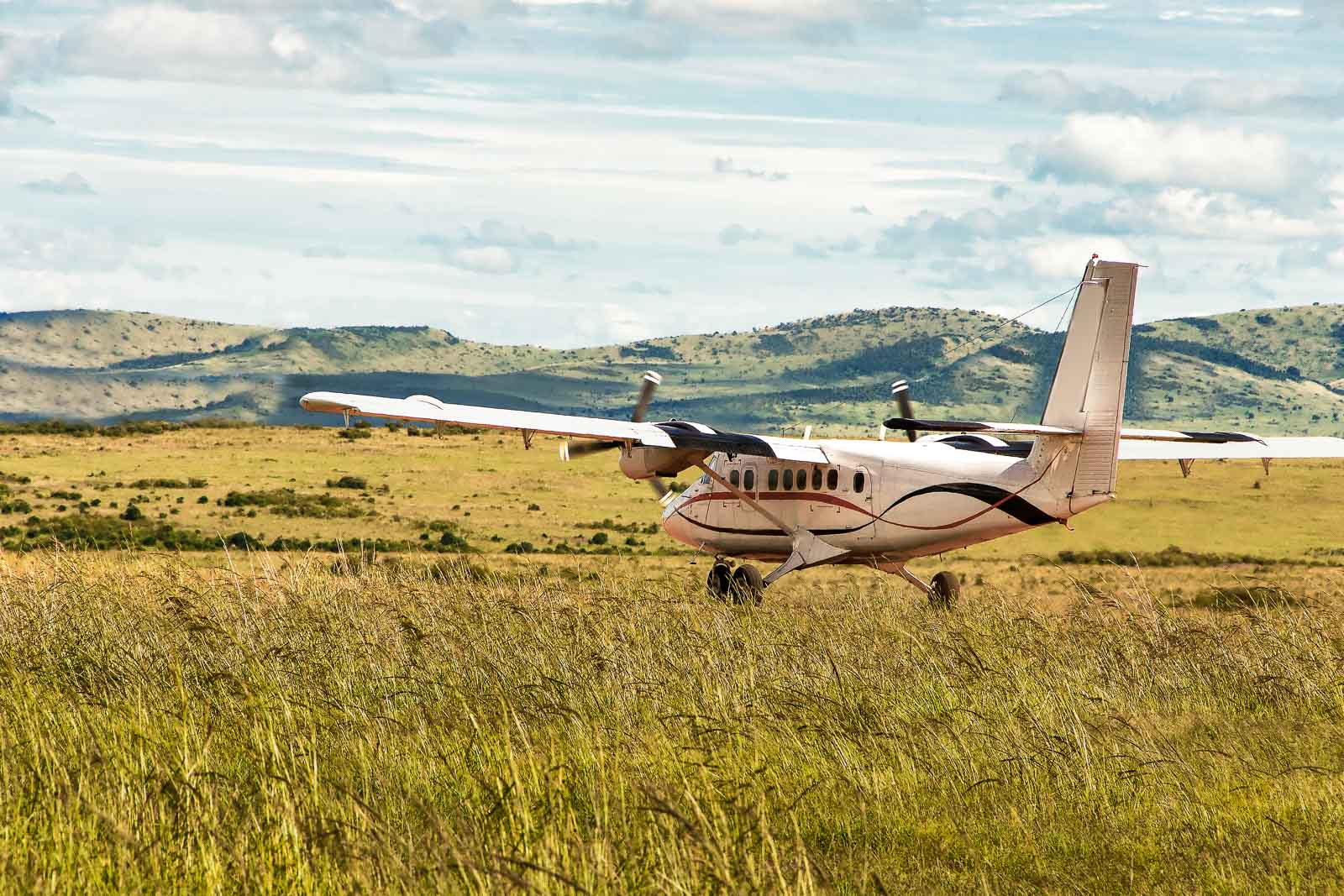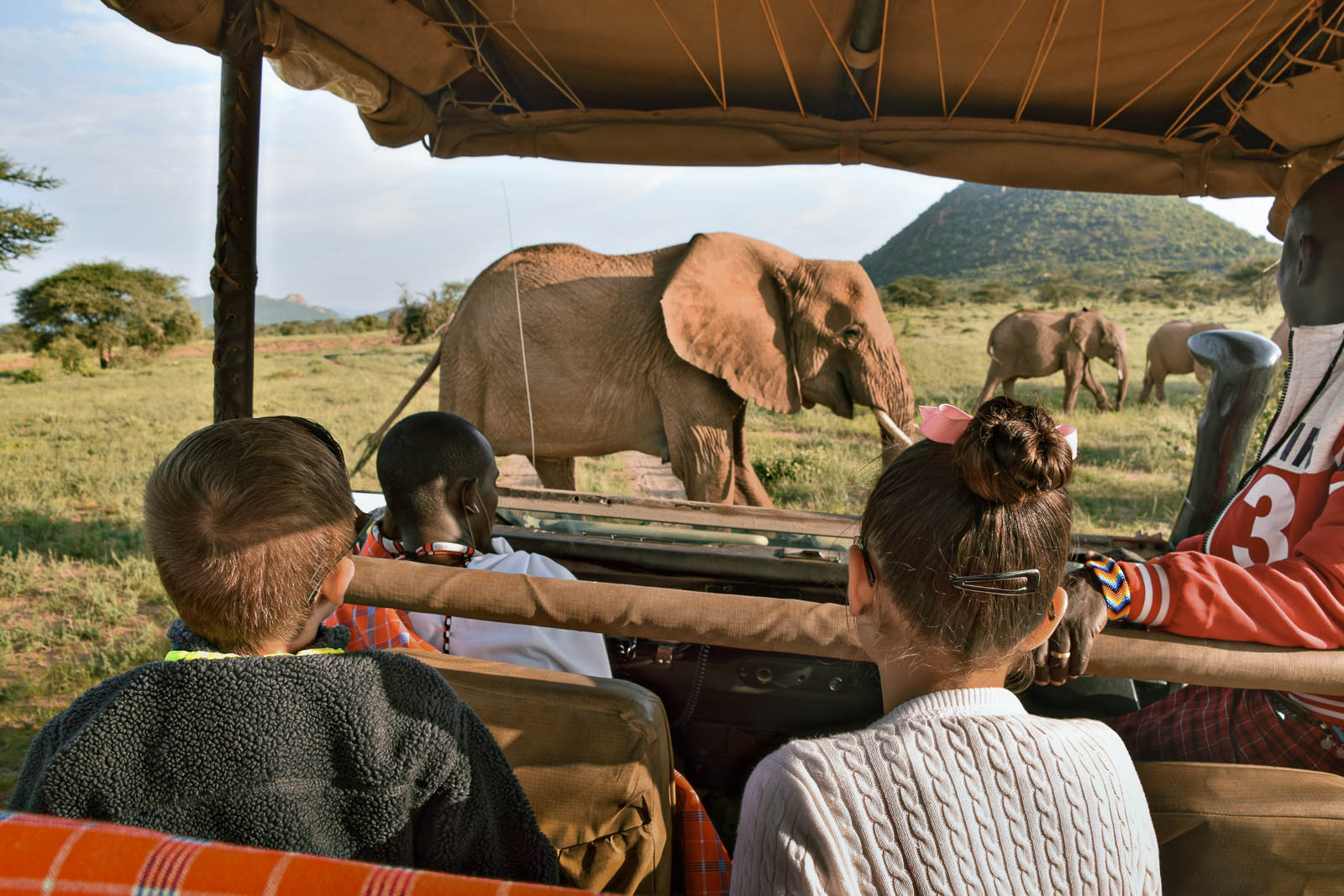Booking Your First Safari? Don’t Miss These Travel Advisor Tips

Chase Travel

Ready to plan your trip? Chase Sapphire Reserve cardmembers get exclusive access to Reserve Travel Designers to create a personalized itinerary based on your travel style. Start planning your custom itinerary today.
Planning your first safari is a major undertaking. There’s choosing where to go (South Africa for the Big Five? Kenya for the Great Migration?), determining your budget (are there any lodges that aren’t over $1,000 per night?) and picking your preferred type of safari (guided game drives or treks on foot?). And don’t forget about packing the proper gear: How do you account for hot days and cool nights, while also blending in with your surroundings and avoiding pesky insects?
All these decisions can seem daunting, but they don’t have to be. To help simplify the process, we tapped three travel advisors to share their tips and tricks for planning the perfect safari. With their advice on everything from when to book to the benefits of using a travel advisor, you’ll be well on your way to your dream trip.
 Savute Elephant Lodge, A Belmond Safari, Botswana
Savute Elephant Lodge, A Belmond Safari, Botswana
What are the best destinations for a first safari? Are there any that are particularly popular with your clients?
“We have a lot of [bookings in] East Africa—Kenya, Tanzania—and to South Africa. South Africa gives you culture and wine regions, and then there are certain areas [where] you can [go on a] safari as well. If people want to start with a safari, they would typically do East Africa [because you’ll see all the major animals]. But if they want to experience [culture and wildlife], then they might do South Africa because they can get the best of both. It just depends on how much time you have.” — Diane Prater, senior leisure manager at Valerie Wilson Travel by Chase Travel
“East Africa is perfect for first-timers, offering a little bit of everything: amazing wildlife, stunning scenery and well-organized safaris. If you’re after that classic safari experience, Kenya is the place to start. Often called ‘Africa in a nutshell,’ it has everything—wildlife, beaches, savannahs and even mountains… Whether you’re exploring the Maasai Mara or Amboseli National Park, with views of Mount Kilimanjaro, Kenya offers a safari experience you won’t forget.” — Abigail Reco, Reserve Travel Designer
“East Africa gives you the opportunity to see the Big Five: lions, leopards, elephants, rhinos and African buffalos. I feel that it’s the most complete safari experience for those who want more bush time rather than city.” — Rebecca Raynor, Reserve Travel Designer
What’s the ideal length of time for a first safari?
“For a first time African safari, I would recommend four to seven days on actual safari, with the rest of the trip spent exploring cultural and scenic locations or relaxing at the beach. While you can't explore every corner of a country, this timeframe allows you to immerse in the most impactful wildlife and cultural experiences. It's cost effective and allows for flexibility for other activities.” — AR
What’s the best time of year to go on safari?
“Shoulder seasons, like April to May and November to December, can be a good time to visit if you're looking for fewer crowds and lower prices, though there may be some rain. But the wet season—November to March—is the best time for birdwatching. During the dry season, animals are drawn to water sources, making them easier to spot in the open. The dry season also tends to concentrate wildlife in fewer places, so you'll have a better chance of seeing them up close. The dry months are cooler, too, especially in places like Kenya and Tanzania, which can be a relief from the heat and humidity of the wet season.” — AR
“The best time to travel will depend on what experience is most important to you. If there are specific animals you are looking to see, each season offers different migrations. For example, the great wildebeest migration—when the wildebeest migrate from Tanzania’s Serengeti into Kenya's Maasai Mara—takes place from July to October. A sighting is never guaranteed but it gives you an advantage if you go during these times.” — RR

What should you pack?
“The big thing about safaris is that, [to get to] a lot of these lodges, you have to take very small charter or private planes, which are typically on little airstrips in the middle of a field. So we’re talking about very small planes with very little room for luggage. The luggage standards are pretty much 25 pounds of luggage in a soft-sided bag. You can’t [always] carry a regular suitcase to go on safari in Africa.” — DP
”Wearing neutral or earth tones such as beige, khaki and olive is generally recommended for safaris. These colors help you blend into the natural surroundings and prevent disturbing the wildlife. This also brings comfort in the heat and avoids attracting mosquitoes. Black and blue are best avoided, especially blue, because it can attract tsetse flies, which can be a nuisance in some areas of East Africa.” — AR
“You should also pack loose clothing because it gets hot and dusty [in East Africa].” — RR
Safaris have a reputation for being expensive. Are there more affordable ways to do one?
“Plan for the shoulder season. The weather is still good, and you’ll avoid the big crowds, which often leads to lower prices on lodges and safari tours. You could also consider joining a group safari instead of booking a private tour to help reduce costs.” — AR
“To keep safaris affordable, check with multiple vendors: Trafalgar and Collette are both great budget options. And, when choosing a safari, focus on one to two parks to minimize internal flights and lengthy transfers that will increase the cost.” — RR
How should you prepare for your first safari?
“We look at what the recommendations are for vaccines. We also give you what the current regulations are, and then we can give you the resources for where to go. Currently, there are no visas required for Kenya or East Africa or South Africa [for U.S. citizens]. Some of the other countries, [like] Rwanda and Uganda, may require visas.” — DP

Any tips for going on safari with children?
“Make sure you choose a safari that is suitable for your children's ages and energy levels. Some lodges and tour operators offer family-friendly safaris that are designed to engage kids [with activities like] bush walks and animal tracking.” — AR
“Consider the length of the game drives—you should bring snacks, books and games to keep them entertained. Also, look for the right accommodations: ones that welcome kids and offer activities and amenities that are [geared] toward children, like a pool or guided walks. [Some safaris even offer] activities while the parents go out on a game drive, so the kids have alternate choices.” — RR
What are the benefits to booking your safari with a travel advisor?
“We’re your advocate from the beginning, when we’re just starting to talk about it through the process of booking and planning for your trip, and then we’re your advocate during. We have that ability to help our clients. We have the right partners on the ground, that are vetted partners. Many times an advisor shines when helping a client if there is an emergency—certainly not what we want for our guests, but we can be their advocate for getting them where they need to be.
I think we bring a lot of value by listening to what [the client] wants and then designing a trip based on exactly what they’re looking for. And then, we have the ability to do some surprise-and-delight moments—this includes room decorating, room upgrades and ensuring activities around clients’ interests are prioritized.” — DP
Booking With Chase Travel
Eligible Chase cardmembers, visit chasetravel.com for trip recommendations, editor-curated itineraries and access to top hotels, convenient flights, car rentals and must-do local experiences. Plus, Chase Sapphire Reserve cardmembers get exclusive access to Reserve Travel Designers. Start planning your custom itinerary today.
For Informational/Educational Purposes: The views expressed in this article may differ from other employees and departments of JPMorgan Chase & Co. Views and strategies described may not be appropriate for everyone, and are not intended as specific advice/recommendation for any individual. Chase is not responsible for, and does not provide or endorse third party products, services or other content. You should carefully consider your needs and objectives before making any decisions, and consult the appropriate professional(s). Outlooks and past performance are not guarantees of future results.